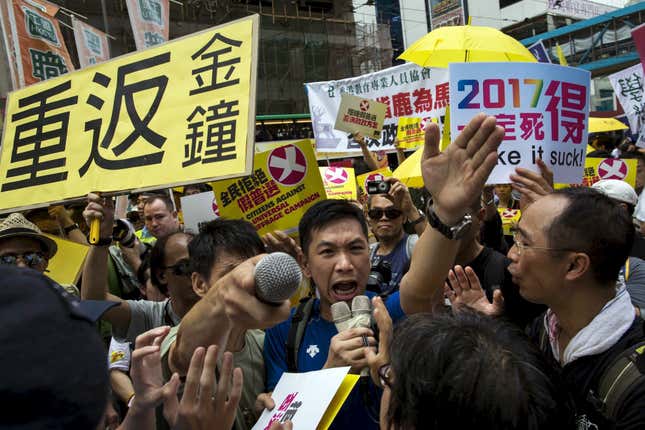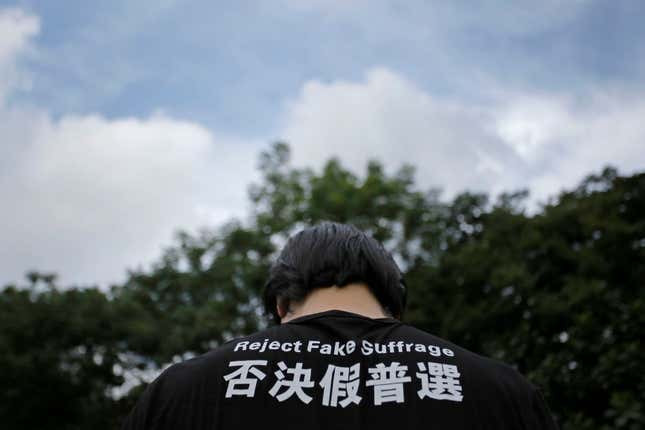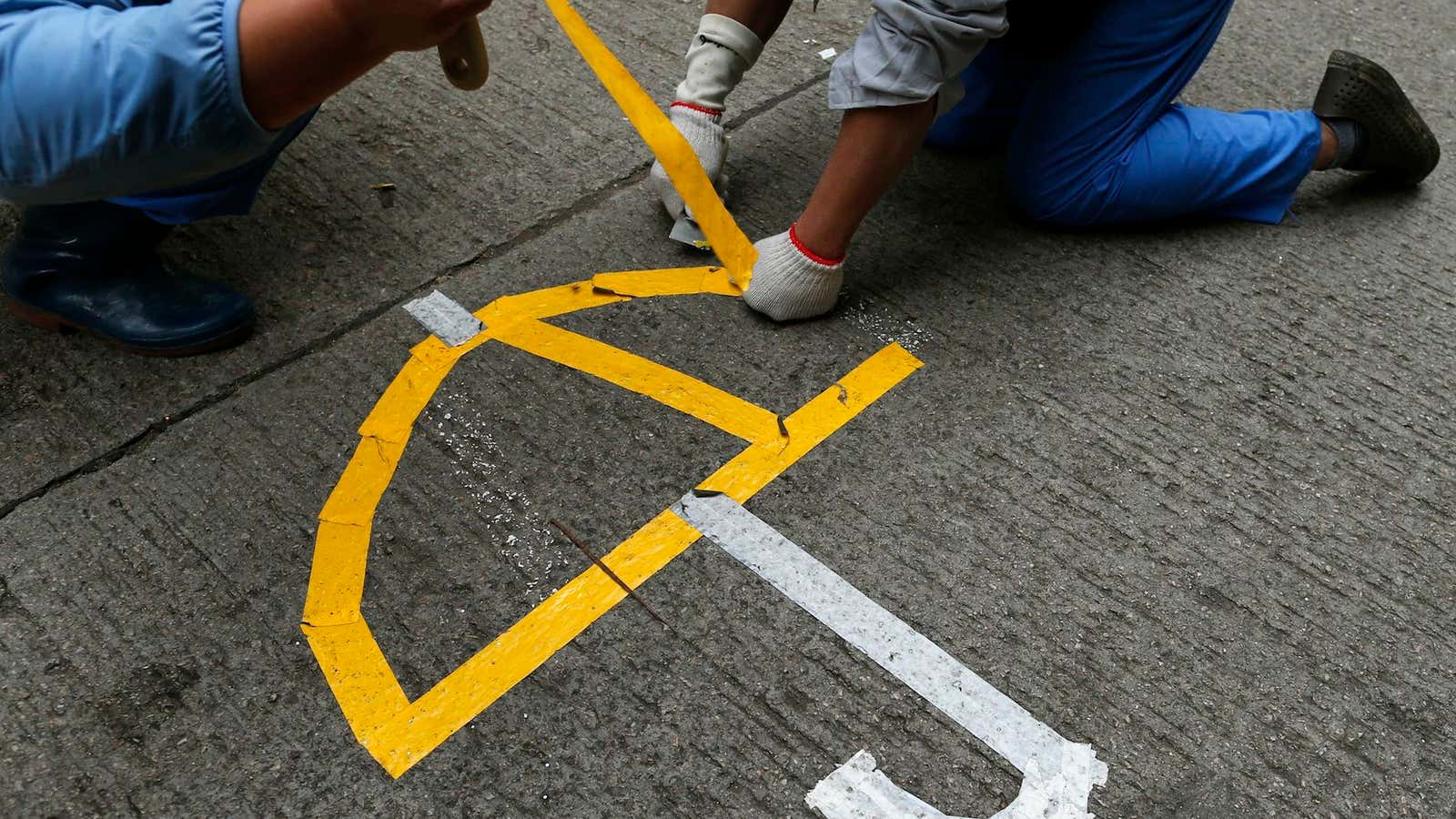HONG KONG—For the past year and a half, the city of Hong Kong has been fighting over how to introduce popular elections, with pro-democracy demonstrators occupying downtown areas and clashing with pro-Beijing groups. On Friday, when lawmakers are expected to vote down a Beijing-sanctioned plan that allows only pre-screened candidates to run for Hong Kong’s top office, that fight will grind to a halt.
“Life goes on,” says Charles Mok, a democratic lawmaker serving in the city’s Legislative Council. “If this proposal does not get us closer to true universal suffrage, as we believe, then we have no choice but to vote it down.”
In the days leading up to the vote, tensions are high. Police have arrested 10 people and may detain more over an alleged plan to detonate explosives around the city when the legislative council convenes tomorrow. Some activists believe the arrests are part of a conspiracy to smear the pro-democracy movement.

Nightly rallies outside government offices have continued since the weekend. The police are expected to dispatch 5,000 officers to surround the legislative chambers on the day of the vote. A commission against corruption is investigating one lawmaker’s claim that he was offered money to vote for the election plan.
For the vote to pass, two-thirds of the city’s 70 legislative council members need to approve it, but 27 lawmakers from pro-democracy parties have already promised to reject it. The difference between failure and passing is just three votes.
If the plan is voted down, in many ways Hong Kong goes back to where it was over a year ago, when the electoral reform process first began. The next election in 2017 will follow the same process that pro-democracy demonstrators had hoped to change: an election committee made up of business leaders and legislators will choose the chief executive, as has been the case since the city was handed back to Chinese control in 1997.
Chinese officials have already said that the process for electoral reform cannot be restarted and that the current framework involving a nominating committee could not be changed. Some have proposed looking ahead to 2022, many including Willy Lam, a professor of Chinese politics at the Chinese University of Hong Kong, believe Beijing will just offer more or less same formula then.

Hong Kong’s current chief executive, CY Leung, has said that the city can’t debate electoral reform forever and if the plan is voted down, the government will focus on the economy instead of politics. The pro-democracy camp also appears ready to turn its attention to new issues.
“We will focus on all the problems Hong Kong faces, politics being one of them,” says Emily Lau, a Democratic Party council member. The issue of universal suffrage is important she says, “but there are many other things too.”
Joshua Wong, one of the main student leaders of the pro-democracy movement, is looking further ahead as well. He is still focused on pushing for universal suffrage but the real question, he says, is what happens in 2047 when the fifty years of “a high degree of autonomy” that Beijing promised Hong Kong expires.
“We still need to fight for democracy and true universal suffrage. We need to think about what is the final aim for the democracy movement,” Wong says. “If we fight for democracy it’s not only to fight for universal suffrage, we also need to use the vote…to fight for the future of Hong kong after 2047.”
Some protesters are losing heart. Seanix Yu, 22, who participated in last year’s demonstrations, says lately the movement has focused too much on who to blame for the failure to implement real electoral reform. “I am disappointed in ourselves and society,” Yu says. “I hope that people are able to move the government to change a bit after its failure.”




